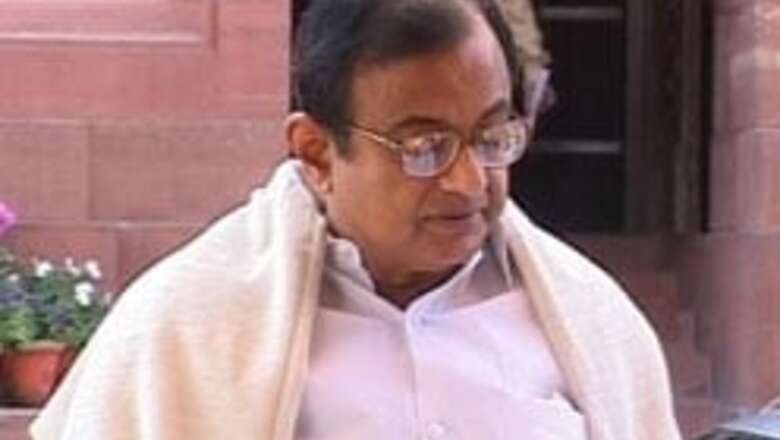
views
New Delhi: Finance Minister P Chidambaram on Wednesday said that an investment boom in India was continuing but a sluggish farm sector was hurting overall growth.
The Indian economy, Asia's third largest, has grown at an average 8.8 per cent in the past four years and is estimated to grow 8.7 percent in the fiscal year that ends in March.
The farm sector, which supports nearly 60 per cent of India's population and accounts for 17.5 per cent of the country's gross domestic product, has stagnated in the past few years.
Chidambaram expects the economy to grow 8.8 percent plus in the 2008-09 fiscal year.
Talking about the inflation, he said in India it is still a threat because of high food prices, as he promised to consider policy intervention if growth slowed in any industrial sector of the $1 trillion economy.
India's annual inflation rate hit 4.89 percent in mid-February, the highest in more than eight months and just below the Reserve Bank of India's target of 5 percent for the fiscal year ending March 31.
"One of the reasons why inflation is still a threat is because of food price inflation," Chidambaram said.
"If we grow enough food to feed our people, we are insulated from world prices, but if we are dependent on imports we are subject to world prices." He said world prices of wheat had increased by 88 per cent since April 2007 and those of rice by 15 per cent.
India's food output has failed to keep pace with the demands of its 1.1 billion population, most of whom rely on the land for all or part of their livelihoods.
Stagnant farm growth has widened an already yawning wealth gap between city and village.
At the same time, a jump in global prices of farm commodities has made importing staples a costly and politically damaging exercise and contributed to a spike in local food prices.




















Comments
0 comment